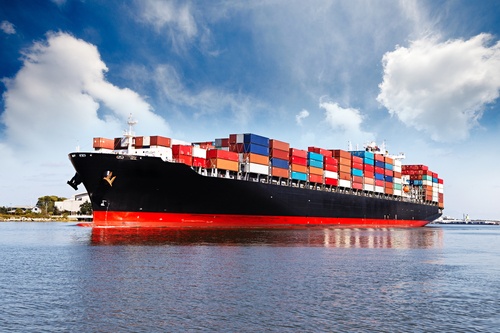The same weekend that the State of Texas was responding to a coordinated ransomware attack against dozens of government entities, a trucking company CEO from another part of the country shared his ransomware story.
What is it like going through a ransomware attack?
Peter Latta is CEO of A. Duie Pyle, a trucking company based in Pennsylvania.
He told FreightWaves, a transportation industry publication, about what happened earlier this year when the company was the victim of a ransomware attack.
It was 5:30 a.m. when dock workers started reporting computer systems going down. But it was tough to get the message to IT support:
"The first thing they [hackers] took out were our phone servers and our email servers, so they cut off communication, much like when you kill the radioman in combat to cut the squad off from the platoon."
But Latta says the company's CIO and systems engineers realized it was a ransomware attack which disrupted operations.
There was a ransom demand, but the company refused to pay:
"Extortion is the oldest crime in the world. They used to threaten to burn your business down if you don't pay them. Here, they lock you out of your house and don’t give you the keys back until you pay them."
Instead, his company decided to be very open with customers that it was battling a ransomware attack and trying to manage operations at the same time.
"Customers continued to support us even when our service wasn't quite spot on, but it was pretty close," he said. "We have fully climbed out of this."
What is the trucking industry doing to combat cybercrime?
The American Trucking Association (ATA) has established a program called FleetCyWatch to combat cybercrime in the industry.
Because the freight industry is like every other industry across the continent: increasingly connected and at risk. FleetCyWatch puts it like this:
"In today's environment, cyber adversaries target victims based on poorly secured systems and inexperienced employees to illegally access confidential and proprietary information, disrupt business operations, and leverage compromised systems for malicious purposes. The safety and security of on-road commercial vehicles is a top priority for ATA.
... using Fleet CyWatch is recommended for reporting all types of internet crimes related to disrupting fleet operations. Reports will be communicated with appropriate federal cyber-authorities to be handled by jurisdiction, type of cybercrime, and commercial/public impact. After protecting fleet identity, reports are communicated with intelligence sharing and analysis agencies and the fleet community registered to Fleet CyWatch."
See the FleetCywatch program overview for yourself.
[RESOURCE: SecureWorld cybersecurity conferences in North America]




